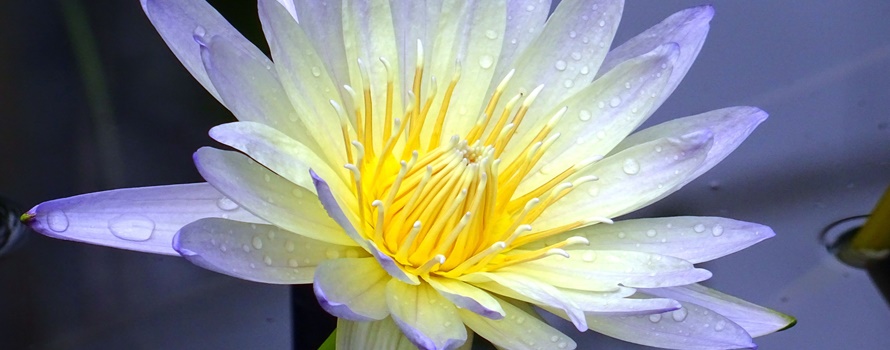Relationship with other living Beings
We humans are not alone, but we share this planet with millions of other beings, from the tiniest bacteria to the gigantic blue whales, from the most simple algae to the highest sequoia tree. One interesting question of human evolution is the point of how we are behaving towards our fellow beings and how we are going to deal with the severe problems we are causing on this planet – problems that, in the end, affect us all. It seems that the first stage of understanding is already in process: mankind recognizes that the damage done to the earth also has a severe impact on them, and so, slowly, we try to preserve the environment in order to mitigate the effects of our faults and in order to survive. To protect animals, plants and the whole environment out of ecological and economic-material motivations is the first and the most necessary step. But it is still done out of self-interest. The next and higher stage would be protection and preservation out of deeper understanding, compassion and a real inner conviction of what we are doing.
It may be difficult for us to understand animals, plants or other beings. It is sometimes even difficult for us to understand other people around us, but at least we can – more or less clearly – communicate with them through our language. Considering this, it seems even more difficult to communicate with other beings, only from the fact that we know nothing or only little of their individual "language". And it is of course totally necessary for us to use them for our own purposes, for food production and much more. But it is worthwhile to push the boundaries, trying to understand the fellow beings that surround us, their needs, their behaviours and their view of the world. I would even dare to say that we can learn from each other.
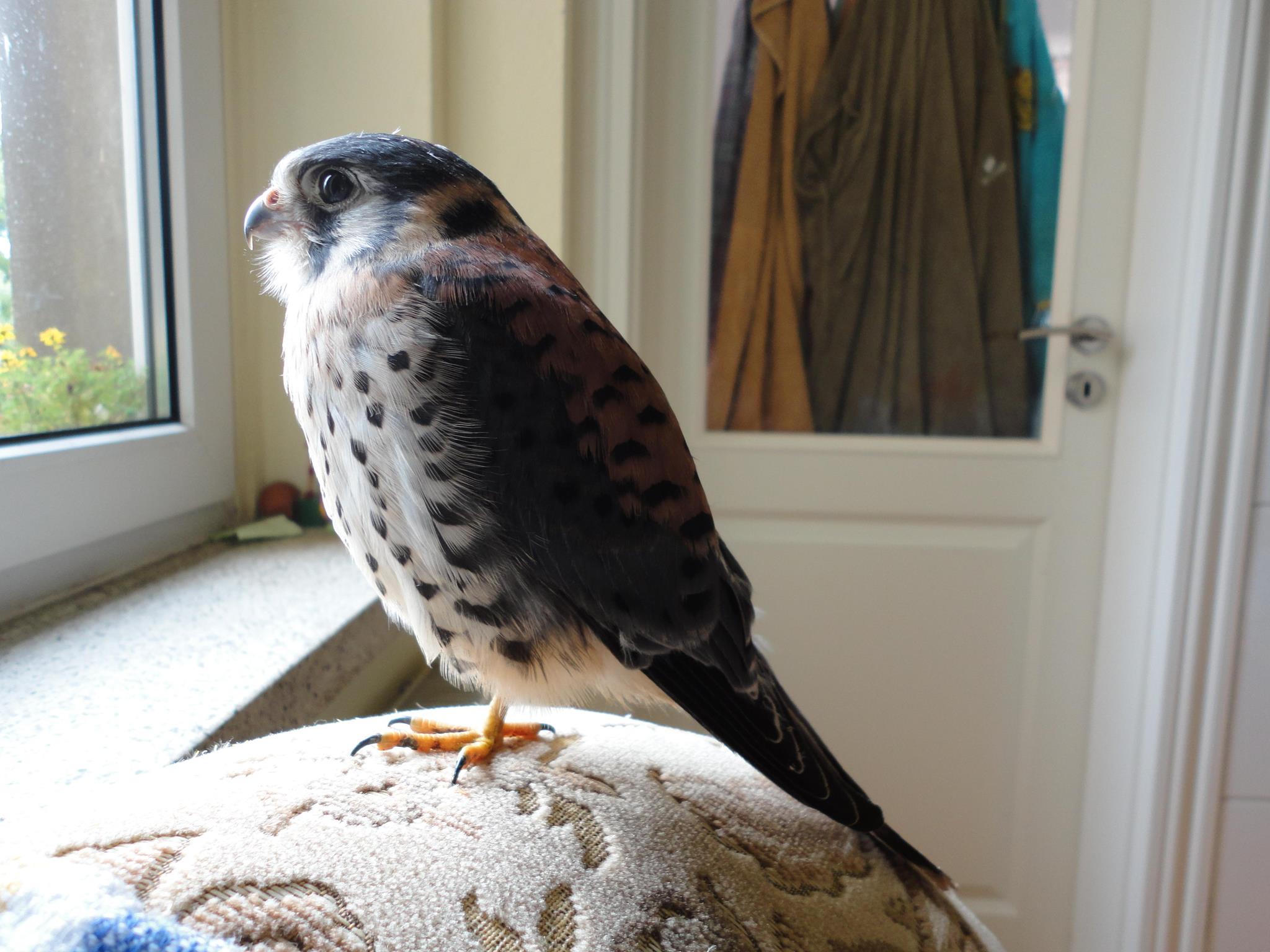
How do they see the world?
American Kestrel looking out of the kitchen window – standing on one leg
There are many scientific studies about the behaviour of animals. Human ethology, on the other hand, takes a closer look at human behavioural patterns and their phylogenetic origin, and many of these ways of behaviour have indeed been evolved during our far history, when our ancestors had to adapt to the environmental conditions in order to survive, especially driven by the need for food, reproduction and defence or flight (for this, I recommend the works of Irenäus Eibl-Eibesfeldt, an Austrian human ethologist). Thus, our own inner heritage is still not so far from that of the animals and plants and we have gone through – and are still going through – the same stages as they have.
We humans should neither consider ourselves as being the pride of creation, nor as dumb instinct-driven apes. We should not neglect what distinguishes us from other beings of this planet (self-reflection and free will, which should teach us to be responsible), but our recent knowledge about the behaviour of animals should not be used to declare the animal an inferior and instinct-driven machine. Instead, we should use this knowledge to learn to understand the animal, its needs, its wishes and its feelings, and to view it with open mind and warm heart. Animals are without any guilt, and although we may sometimes consider them even as cruel, we should be aware that they always behave according to their nature – as does every other living being in the world. We humans also behave according to our nature, but still we are able to reflect and to judge our thoughts and deeds. And we should do so. It is our duty to evolve at least a certain degree of responsibility towards ourselves and towards our fellow beings.
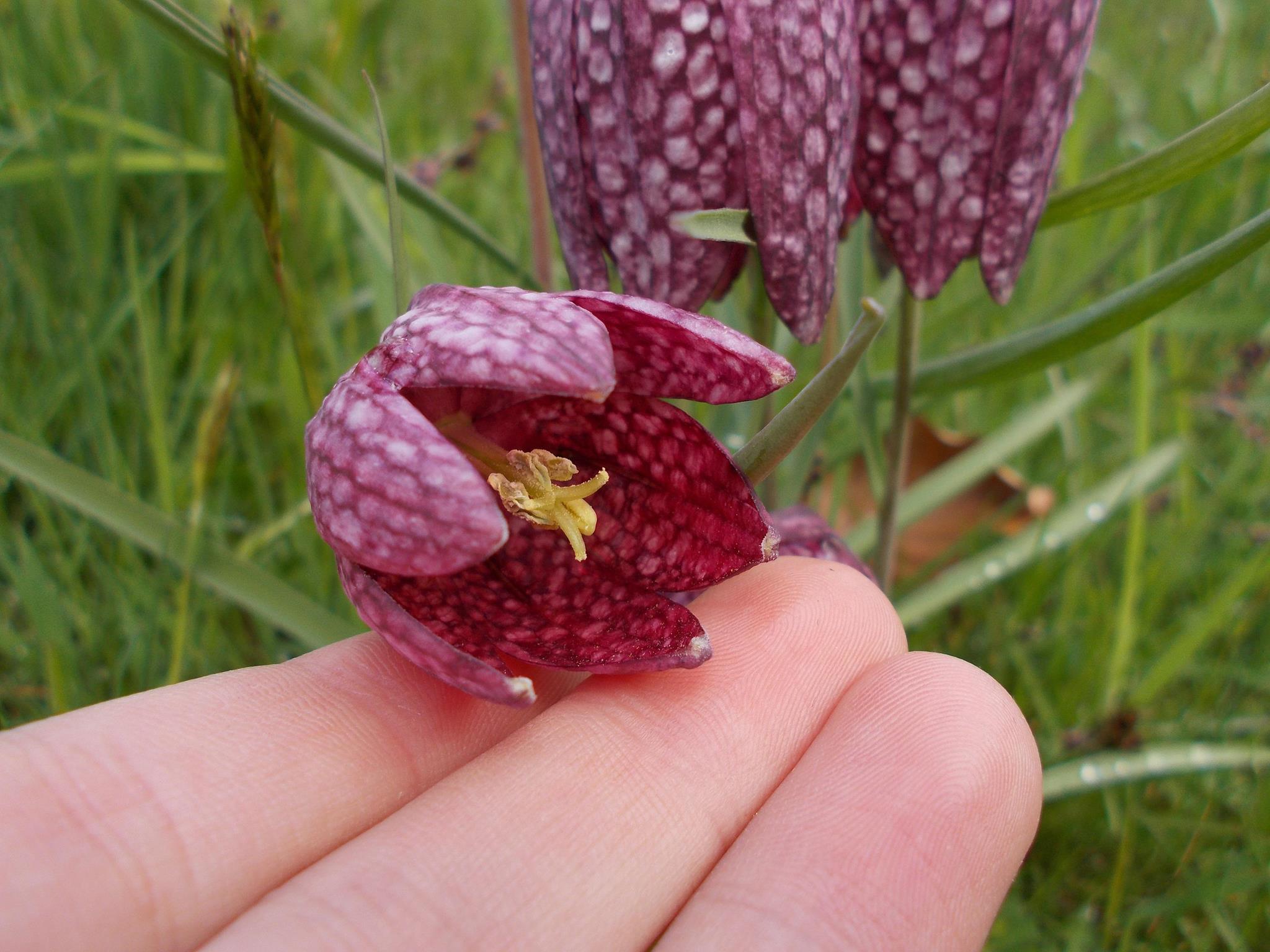
Gentle Touch: Chess flower
From a spiritual point of view, animals are our younger brothers and sisters, and plants or fungi may be even younger relatives. This gives us – as the elder brothers and sisters – a responsibility towards them, and we should think about this and see to take care of them.
Many ancient cultures, and still existing indigenous peoples as well, asked the gods or spirits of nature for permission when killing an animal or a plant. They took the life of the animal to have food for their families and themselves, or took the life of a tree to build houses. There existed, and still exist, shamanic or similar rituals to ensure a good hunting and the sympathy of the beings of nature. Of course, a part of these attitudes may have been based more or less on fear of being punished by the spirits, which is surely not the best impulse for a real responsibility and deeper understanding.
We modern humans do not longer fear nature, because natural sciences have helped us to solve many of the mysteries of this planet and even of the universe. In a materialistic society, any spiritual or religious attitude towards nature has very little validity. Animals and plants unfortunately have often become mass-produced goods. Regarding our food, we are mostly not longer able to trace back where it came from, and a beefsteak wrapped in plastic does not longer remind of the animal it has been once, similar to fruits and vegetables, which in many cases have never been exposed to the sun, but only to artificial light. On the other hand, dogs, cats and other pets are our daily companions, sometimes loved family members, sometimes mistreated as if they were toys.
I do not plead for vegetarianism or veganism. Even as a vegan, you "kill" plants. And just remember that the cells of an apple you eat or of a potato you roast are still alive. Surely, the plants won’t suffer as much as an animal when we kill them. And surely it isn’t my intention to say that a potato getting roasted should start to cry out in pain. But what do we really know about the inner life of plants apart from physiological and physical aspects? Although – or maybe even because – I have been studying plants for some years now, I think their inner life holds more mysteries than only the process of photosynthesis or flower formation.
Maybe it’s better not to keep a blind attitude of "being free of guilt", but rather an attitude of deeper thinking and a certain degree of awareness of what we are consuming. We are all trapped in a societal system that unfortunately won’t change that fast in the next years, but still we can decide on our own. It is, for instance, possible to reduce our consumption of meat, and to receive this little amount thankfully and in the awareness that some animal gave its life for it.
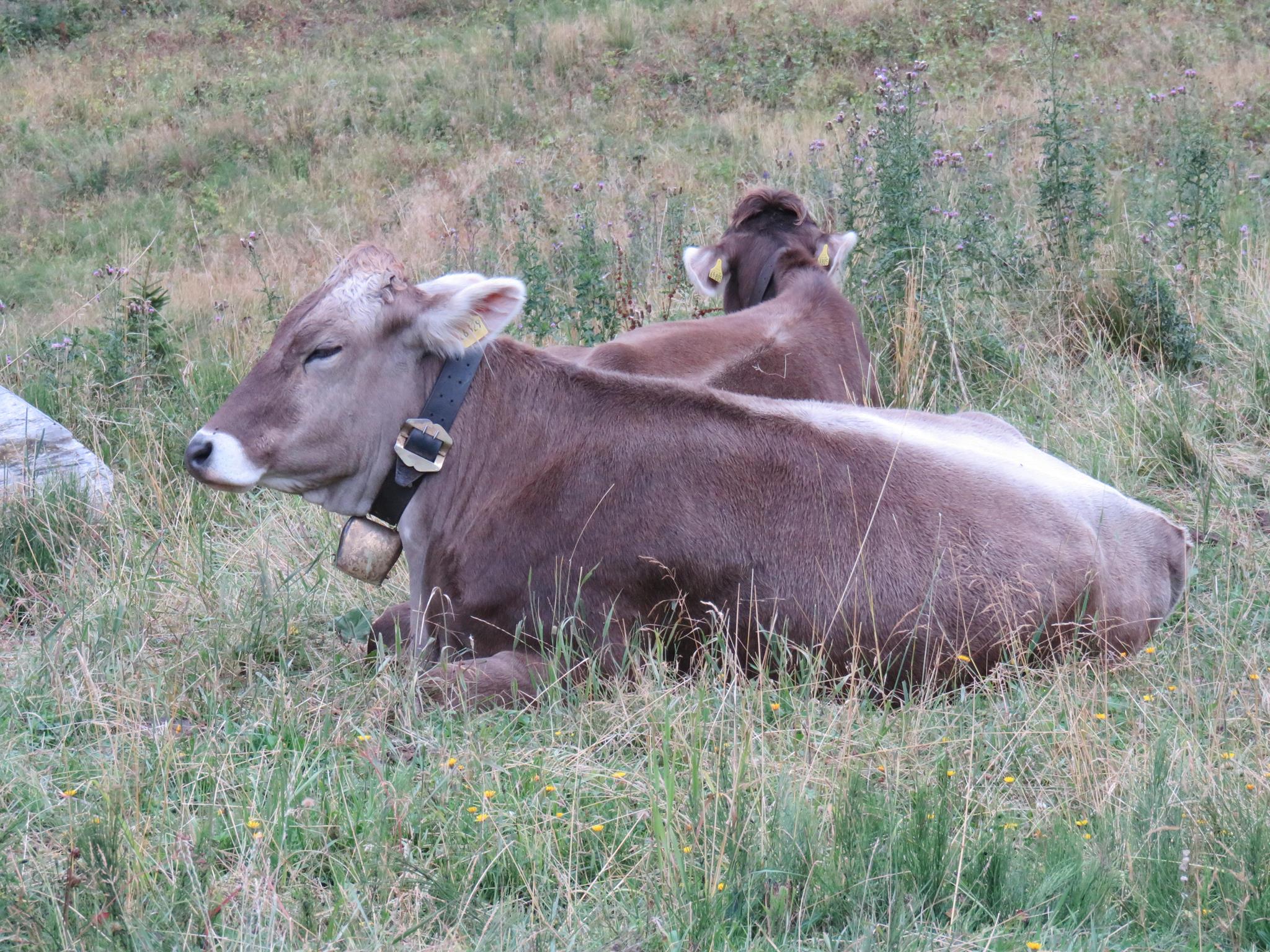
Cows chilling on alpine pasture
I believe that an animal we care for with love and joy will grow from the love we give to it. A close friend of mine lives in a small apartment and has a cat. I heard some people saying: "Why do we keep cats as pets? They have to be wild and free like their ancestors." But I have never seen such a love between a cat and its owner. I believe that the cat grows from the love and care he gives to it, and this may compensate the "lack of freedom", if this lack does exist for the cat at all.
I experienced a similar thing when I worked at a falconry. I always considered falconry as a barbaric practice, binding proud birds of prey to the ground. But I was wrong. Soon I learnt that my prejudices had been totally exaggerated. I know many falconers who treat their birds with a love and care that is at least equal to the love they give to their own children and family. I learned that there was a giving and taking: the birds were protected from diseases and from predators, and they got their daily ration of food, which is not always the case in nature, where these animals do not live as long as in human captivity. The birds of prey became hunting companions of the human and, if not mistreated, their lives might be in no way worse than in nature.
And recently, I read an article written by a behavioural scientist who had studied circus animals, saying that they are much happier and healthier than animals in a zoo. They are experiencing and learning all the time together with their trainers, which makes their lives much more exciting than that of most zoo animals. I thought this was a wonderful example of humans and animals not only working together, but also learning together. Of course, I do not deny that there are many irresponsible animal owners in the world – and I surely have met some as well. But I think one should not simplify things and blindly follow the prejudices that exist, especially not if one has never worked with animals in his life at all. It’s also a question of going there and seeing for youself.
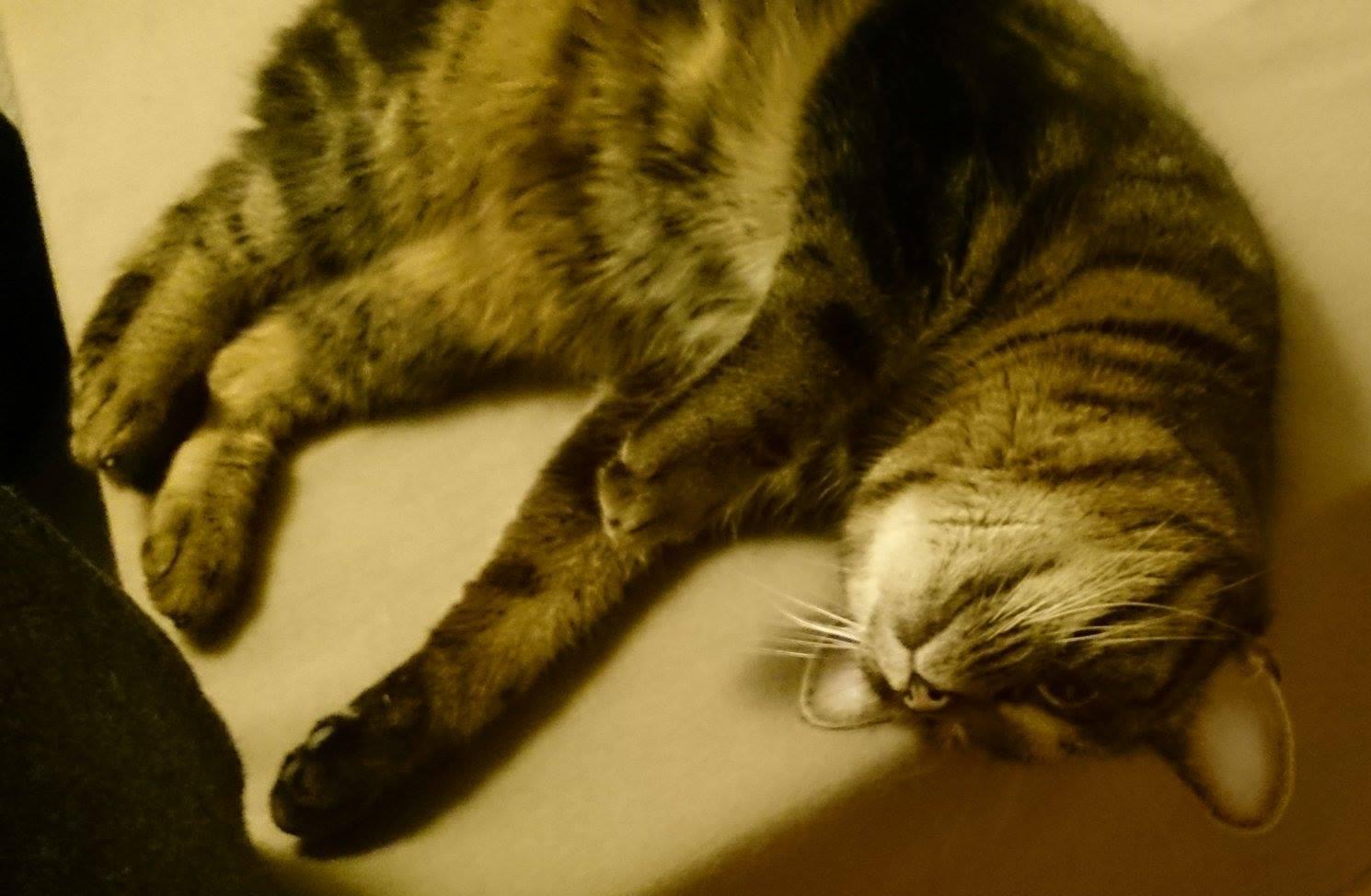
Not "wild and free", but obviously happy
Wouldn’t it be a better approach to let a real relationship to our fellow beings grow on understanding and real interest instead of fear, disparagement, over-emotionality or a one-sided scientific orientation? I remember that in some book I read that whales are either "substitute for religion" or "sushi", and a professor of my university said that animals are often "either worshipped to death or hated to death". These admittingly very sarcastic phrases give an idea of how animals suffer from our exaggerated notions of them. Neither one-sided scientific approaches nor over-emotionality – may it be fear, worship or disparagement – should be the basis for a real inner relationship to other living beings. Both limit our view and make us blind. This short text may give an idea of how a balanced way in between could look like, and I believe there is a way from which we all benefit and learn – a way of responsibility, knowledge and understanding.
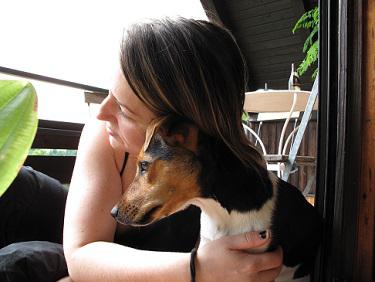
"Truly I tell you, whatever you did for one of the least of these brothers and sisters of mine, you did for me … " (Matthew 25:40)

"Be kind to the animal, treat it with indulgence, goodness and leniency! Act responsible for the animals you care for!" (Judah Ben Samuel in Sefer Hasidim)

"The righteous care for the needs of their animals … " (Proverb 12:10)
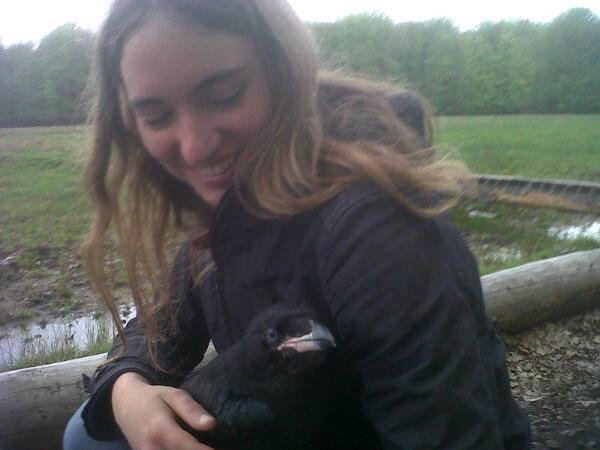
"Do never withdraw your love and compassion from any being that was created by God! Don’t beat or torture neither cattle nor wild animal, neither poultry nor worms. Don’t beat any dog or cat, don’t throw stones after them, kill no fly, no wasp, even no ant or gnat. Give them their food and learn from God, who nourishes and loves all beings." (Mose Ben Cohen Eleasar in Sefer Hasidim)
© 2016 Corra

